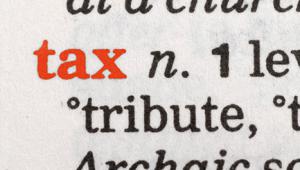The country’s revenue minister Michael Woodhouse said today that the proposals include new disclosure requirements for foreign trusts and suggest a register that is searchable by the country’s Department of Internal Affairs and the police.
The recommendations were made by tax expert John Shewan, former chair of Pricewaterhouse Coopers New Zealand.
He was appointed to lead an inquiry, which became known as the Shewan inquiry, after 11.5 million documents from Panama-based law firm Mossack Fonseca were leaked.
The documents revealed how the rich and famous have exploited international tax laws to avoid paying their fair share, and sparked public outrage when they were published by a consortium of news outlets around the world last April.
Woodhouse said that following the inquiry, the New Zealand government’s commitment to “moving quickly” is reflected by the inclusion of changes to foreign trust rules in the bill, which has now been introduced to parliament.
In the weeks leading up to the bill’s introduction, there were reports that New Zealand was under investigation by the European Union for being a tax haven. The country was claimed to be under threat of being put on a blacklist of countries with poor transparency or harmful tax laws.
However a statement released by a recent EU delegation to New Zealand stressed this was not the case, and investigations were being carried out on all non-EU countries as a result of the Panama Papers, not just New Zealand.
In response to the news however, Andrew Little, leader of New Zealand’s opposition Labour Party, criticised the government for a “flippant response” to foreign trusts.
“The government must make our trust sector more transparent,” he said last week. “While National [the government] will adopt changes recommended by the Shewan inquiry, it will not introduce an automatic information exchange with other tax jurisdictions or scrap tax exemptions on foreign income – two matters raised by the EU.”
However Woodhouse said the bill does include measures to implement standards enabling the automatic exchange of tax information between governments around the world – an OECD initiative to make cross-border tax avoidance and evasion more difficult.
Little, however, also pointed out that his party has called for a searchable, public register of foreign trusts – a standard backed by tax transparency campaigners worldwide, and one this bill falls short of doing.
The changes to foreign trust rules are only a small part of the proposed legislation, whose main purpose is to simplify tax processes in New Zealand in order to reduce compliance costs on small- and medium-sized businesses.













